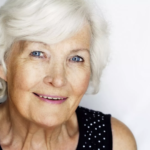How To Live To Be 100

In his bestselling book, Healthy Aging: A Lifelong Guide to Your Physical and Spiritual Well-Being, Dr. Weil notes that studies of people who live to be 100 years old or more have failed to find a single, specific formula for senior health and a long life. There is no evidence, he says, “that particular foods, supplements or other substances have anything to do with our living to extreme old age.”
At the same time, however, he emphasizes that lifestyle does matter, especially concerning senior health. He contends that strong family ties, healthy food (but no one, specific food) and lifelong physical activity are probably what make residents of the island Okinawa the longest-lived population in the world, with an average life expectancy of 81.2 years.
With that two-sided perspective in mind, it’s interesting to look at a recent, small survey that asked American centenarians how they conduct their lives. Evercare, a company that specializes in coordinating care for senior health, commissioned a survey of 70 American women and 30 men who were 99 years old or older, and reported the following:
- American centenarians are surprisingly plugged into popular culture. Nearly a third have watched a reality TV show, and 27 percent have watched MTV or music videos. One in seven has played a video game.
- Six percent have been on the Internet, and four percent have listened to music on an iPod.
- Eighty-two percent said their dietary habits had improved or stayed the same as compared to 50 years ago.
- Only 23 percent said they have ever smoked. On average those who quit did so 41 years ago. Two percent still smoke!
- Favorite memory? Twenty-eight percent said their wedding day, followed by 13 percent citing the birth of a child, and 13 percent their 100th birthday. One said his favorite memory was “when I learned to fly at age 76.”
- Thirty-four percent said the person they would most trust to tell the truth would be their priest, rabbi or preacher.
- Seventy percent now live at home, either alone or with a spouse.
This survey echoes conclusions of other studies: centenarians are forward-thinking, open to new experiences, eat generally healthy foods, don’t smoke (the rebellious two percent notwithstanding!) have strong religious faith, and cherish their independence.
One more tidbit to contemplate: if you don’t know a centenarian now, you likely will before too long- it may even be yourself! According to the Census Bureau, there are currently 80,000 people aged 100 or older in the U.S, but there will be 580,000 – a seven-fold increase – by 2040. So perhaps many of us will still be around to wish Dr. Weil a happy 100th on June 8, 2042!
















